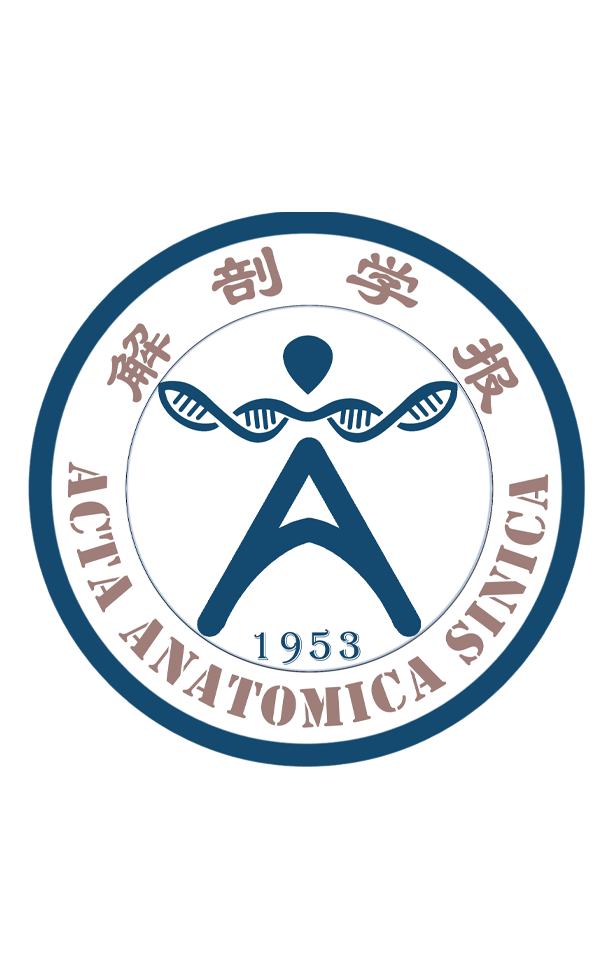欢迎访问《解剖学报》官方网站!今天是
English







革家成年人头面部形态特征的年龄变化
Age variation of morphological traits in the head and face of Gejia people
目的 探讨革家人头面部形态特征随年龄增长而变化的规律。方法 按照国际学术界规定方法,在贵州黄平县共调查了311例(男性为159例,女性为152例)革家成年人38项头面部指标,并计算了12项头面部体质指数,对革家人头面部形态特征的年龄变化进行了初步分析。结果 随年龄增长,革家人有蒙古褶率下降,眼色变浅,上唇皮肤部变高,红唇变薄。革家人形态面高、上唇皮肤部高度、容貌耳长、容貌耳宽与年龄呈正相关,革家人头宽、眼外角间宽、唇高、红唇厚度与年龄呈负相关,革家人额最小宽、下颌角间宽、眼内角间宽、口裂宽、鼻深与年龄无相关。革家人容貌面、形态面、头面宽、头面高指数与年龄呈正相关,头长宽、头长高、口指数与年龄呈负相关。 结论 革家人头面部形态特征随年龄增长呈现一定的变化规律。
Objective To study the change law of head-face morphological characters with the increasing age. Method Thirty-eight physical indices of head and face of 311 Gejia adults (159 males, 152 females) were investigated in Huangping county of Guizhou province. Twelve physical indices of head and face were calculated. Preliminary analysis was carried out on the age change of head-face morphological characteristics. Results With increasing age, the Mongoloid fold rate decreased, eye color became shallow, the height of the narrow part of the upper lip raised, and lip thickness decreased. Correlation analysis showed that morphological facial height, upper lip height, physiognomic ear length, and physiognomic ear breadth were positively correlated with age. In contrast, head breadth, external biocular breadth, lip height, and thickness of the lips were negatively correlated. The minimum frontal breadth, bigonial diameter, interocular breadth, mouth breadth, nasal depth showed no correlation with age variation. With increasing age, physiognomic facial height, morphological facial height, transverse cephalo-facial index, and vertical cephalo-facial index were ascending. Moreover, cephalic index, length-height index of head and lip index were declining. Conclusion With the growth,the head and face measurements, index of craniofacial characteristic and the proportion of observed indices change with regularity.
头部 / 面部 / 指标 / 年龄变化 / 相关系数 / 体质测量 / 革家人
Head / Face / Index / Age variation / Correlation coefficient / physiometry / Gejia people
[1] Li HJ, Zhang QCh, Zhu H. The size variation and related implications of mandibles in northern China in the past 7000 years[J]. Chinese Science Bulletin, 2012,57(4): 387-394.
[2] Xi HJ, Chen Zh. Anthropometric Methods[M].Beijing: Science Press,2010:145-200.(in Chinese)
席焕久,陈昭.人体测量方法[M],北京:科学出版社,2010:145-200.
[3] Wu RK, Wu XZh, Zhang ZhB, et al. Anthropological Study Nationalities of Hainan Island ,China[M].Beijing:Ocean Press,1993:31-32. (in Chinese)
吴汝康,吴新智,张振标,等. 海南岛少数民族人类学考察[M], 北京:海洋出版社,1993:31-32.
[4] Zheng LB,Lu ShH,Zhao XG,et al.Age changes of physical characteristic of Hui nationality in Ninxia[J]. Journal of Inner Monggolian Normal University(Natural Science Edition), 1997,(1):66-71. (in Chinese)
郑连斌,陆舜华,赵晓光,等.宁夏回族体质特征的年龄变化[J].内蒙古师范大学学报(自然科学汉文版),1997,(1):66-71.
[5]Li YL, Zheng LB, Yu KL, et al. Variation of head and facial morphological characteristics with increased age of Han in Southern China[J]. Chinese Science Bulletin,2013,58(45):517-524.
[6]Li JW. On ethnic group identity of Gejia people of cultural expression[J]. Nationalities Research in Qinghai, 2008,19,(4):20-24. (in Chinese)
李技文.革家人族群认同的文化表达—以枫香寨为例[J].青海民族研究,2008,19,(4):20-24.
[7]Li JW. Social memory and ethnic identification of Gejia people[J]. Journal of Hubei University for Nationalities(Philosophy and Social Sciences), 2010,28(5):25-30. (in Chinese)
李技文.革家人的社会记忆与族群认同[J].湖北民族学院学报(哲学社会科学版),2010,28(5):25-30.
[8]Dai XM, Sheng YL, Liu MQ. Ethnic recognition and legal acknowledgement——a case study of Gejia[J]. Journal of Minzu University of China(Philosophy and Social Sciences Edition), 2011,38(5):78-88. (in Chinese)
戴小明,盛义龙,刘木球. 民族识别与法律认定—以革家人认定个案为研究样本[J].中央民族大学学报(哲学社会科学版),2011,38(5):78-88.
[9]Yang XJ, Yu YSh, Li JF. Four human population genetic characters of Gejia and Mulan groups in Guizhou province[J]. Basic & Clinical Medicine, 2012, 32 (11):1275-1278. (in Chinese)
杨小军,余跃生,李建富. 贵州(亻革)家人和仫佬族4项人类群体遗传学特征[J]. 基础医学与临床,2012, 32 (11):1275-1278.
[10]Shao XQ. Anthropomorphic Handbook[M].Shanghai:Shanghai Lexicographical Publishing House,1985:202-296. (in Chinese)
邵象清.人体测量手册[M]上海:上海辞书出版社,1985:202-296.
[11]Luojinsky YY, Levin MG. Anthropology[M]. Beijing:Police Education Press,1993:501-502. (in Chinese)
雅·雅·罗金斯基,马·格·列文(王培英,汪连兴,史庆礼译). 人类学[M]. 北京:警官教育出版社,1993:501-502.
[12]Xi HJ. New Geriatric Medicine [M].Beijing: People’s Medcial Publishing,2001:45-46. (in Chinese)
席焕久.新编老年医学[M].北京:人民卫生出版社,2001:45-46.
[13]Chen TY, Yu JSh, Zhong Sh, et al. The measurement of craniofacial soft tissue thickness in individuals of Chinese Tujia nationality[J].Chinese Journal of Forensic Medicine, 2005,20(4):213-215. (in Chinese)
陈廷瑜,余家树,钟山,等. 中国土家族人群头面部软组织厚度的测量[J]. 中国法医学杂志,2005,20: 213-215.
[14]Ji LD, Xu J, Zhang YP. Environmental adaptation studies in human populations (in Chinese)[J]. Chinese Science Bulletin, 2012, 57(2-3): 112-119. (in Chinese)
季林丹, 徐进, 张亚平. 人类群体环境适应性进化研究进展[J]. 科学通报, 2012, 57(2-3): 112-119.
[15]Tan JZ,Li LM,Zhang JB, et al. Craniometrical evidence for population admixture between Eastern and Western Eurasians in Bronze Age southwest Xinjiang[J]. Chinese Science Bulletin, 2012,57(28-29):2666-2673. (in Chinese)
谭婧泽, 李黎明, 张建波,等. 新疆西南部青铜时代欧亚东西方人群混合的颅骨测量学证据[J]. 科学通报,2012,57(28-29):2666-2673.
国家自然科学基金重点资助项目
/
| 〈 |
|
〉 |